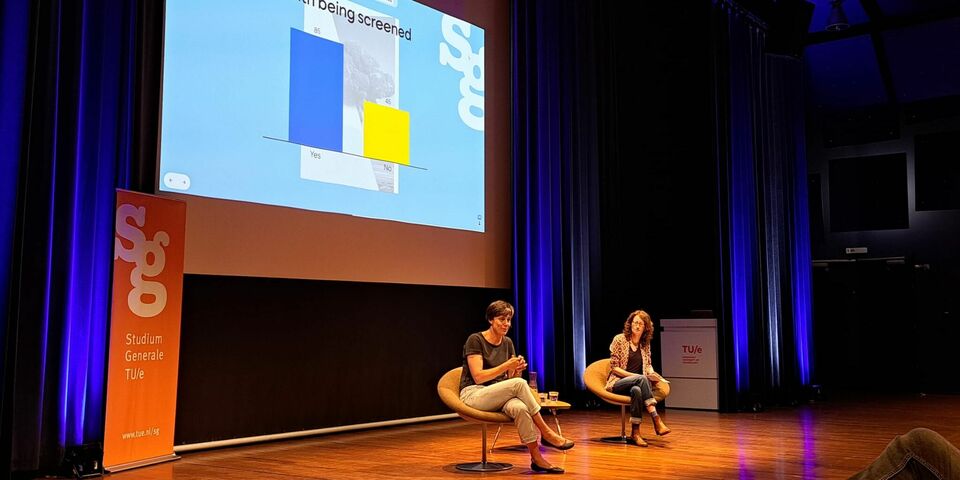“Fear plays an important role in knowledge security”
Should universities continue to work with students and academics from countries like China, Iran and Russia? Which research fields are sensitive? If introduced, won't a long screening process scare off academics? This afternoon Saar Slegers, maker of the podcast series Vriend of Vijand (Friend or Foe) about knowledge security, was interviewed by Studium Generale. “Academics are always keen to talk about their work. But I'm seeing that change,” says Slegers.
In September of last year educational institutions were called upon by the House of Representatives to analyze more closely the risks to their knowledge security. Three months later this same House of Representatives submitted a legislative proposal that would require the Ministry of Education, Culture and Science (OCW) to reserve an additional 2.8 million euros for the continued improvement of knowledge security within universities. This proposal was adopted with a strong Parliamentary majority. However, Saars Sleger, science journalist and radio producer, said this afternoon that knowledge security isn't exactly high on the agenda of the House of Representatives. “It's a topic that only a few members of the House are addressing.” But now and again she herself raises the topic with Education Minister Robbert Dijkgraaf. “When touching on knowledge security in a general sense, he remains fairly abstract, and when practical applications are mooted, the answer is often: ‘We still need to look into that’ or ‘But first that needs some further investigation.’”
In the meantime, OCW is working on a Knowledge Security Screening law, which must come into effect in 2025. According to Slegers, this has already raised a problem, namely that it isn't entirely clear what knowledge security encompasses. Added to which, she says, the focus has already shifted to the concept of economic knowledge security, only making the discussion even more vague. Lists of fields can be found, Slegers reassures us, “but they all include different areas, and if you look at, say, the NATO list, it includes so many research fields that if it were used, you'd have to screen many more people in future.”
Time-consuming
Even the screening process itself presents a big problem, says Slegers. “For academics from certain countries, it can sometimes take nine months before the process is complete. Surely the university won't hesitate to choose someone else.” According to Slegers, there's also a risk that such a time-consuming screening process will prompt academics to choose a country with a less strict and faster system, like Germany for example.
Voting on Mentimeter, two-thirds of the audience in the Blauwe Zaal, consisting largely of students, reveals that personally they wouldn't have a problem with being screened. But according to Slegers, the discriminatory effect that this kind of screening has on people is considerable. “Look, the policy measures governing the screening of people are not in themselves discriminatory, but those who undergo it often experience them as being so.”
La La Land
The open exchange of knowledge wins almost universal support and, it turns out, a large part of the audience has never or only rarely given any thought to whether it is okay to share knowledge as they do. Slegers says this is a big dilemma. “I'd also say yes when asked whether I'm in favor of the open exchange of knowledge. But intelligence services usually regard this as a very naive attitude and sometimes claim that academics who hold it are living in La La Land. But the problem with intelligence services is that they can't share their knowledge with the outside world, and so no one has an accurate idea of the true size of this problem.”
Fear, she believes, is an important factor in this matter: “Academics have to decide whether they want to go ahead and hire someone from a country with a dubious reputation. So if for whatever reason there's some doubt about someone from, say, Iran or China, it may not be all that difficult to decide not to hire them after all.” But academics, she believes, have a responsibility to look into the matter themselves and to try and find out whether the doubt is in any way justified.
In closing, she mentions again the role that science and the exchange of academics can play: "During both the Cold War and the Apartheid regime in South Africa, for example, when contacts between governments were fraught, the exchange of ideas was often still possible between academics."


Discussion